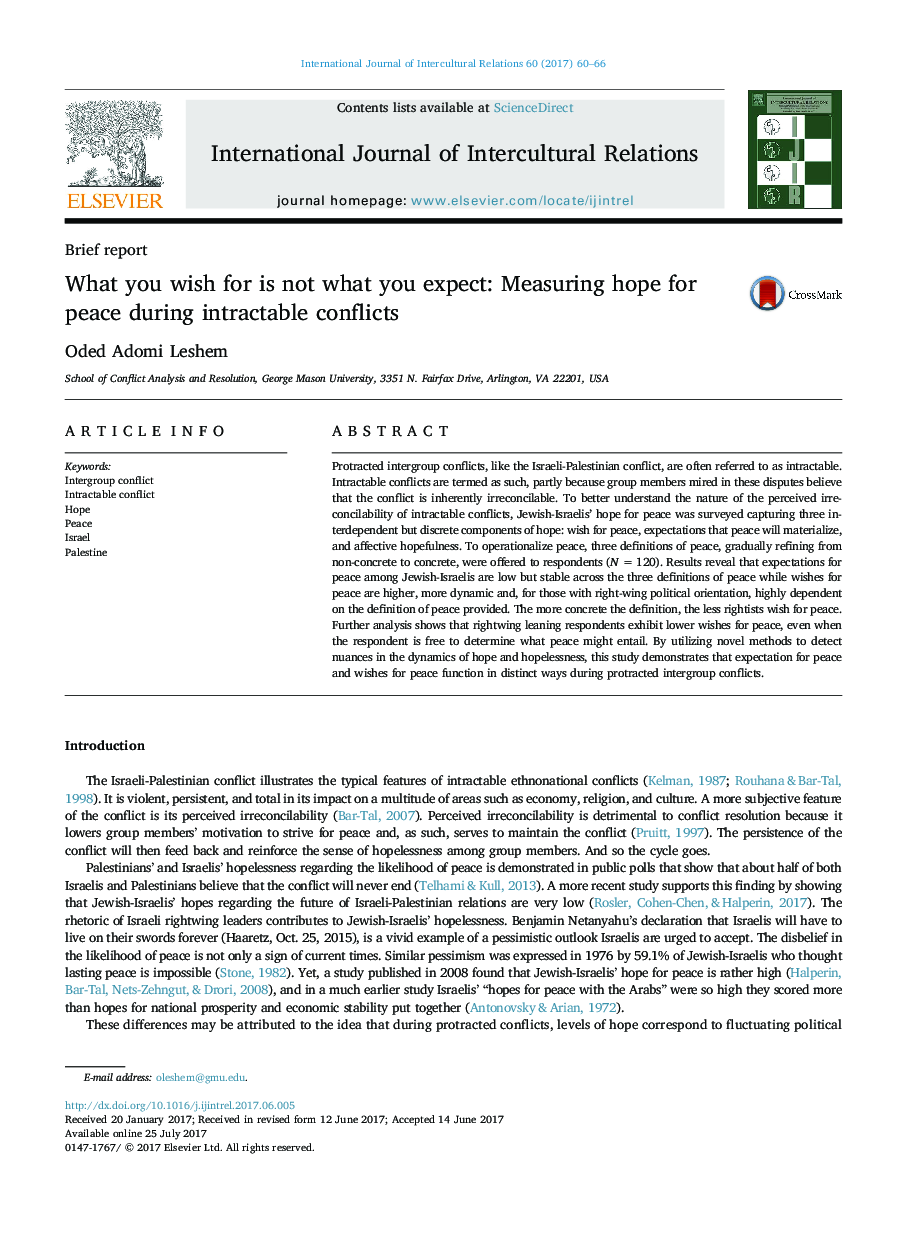| Article ID | Journal | Published Year | Pages | File Type |
|---|---|---|---|---|
| 5045536 | International Journal of Intercultural Relations | 2017 | 7 Pages |
Protracted intergroup conflicts, like the Israeli-Palestinian conflict, are often referred to as intractable. Intractable conflicts are termed as such, partly because group members mired in these disputes believe that the conflict is inherently irreconcilable. To better understand the nature of the perceived irreconcilability of intractable conflicts, Jewish-Israelis' hope for peace was surveyed capturing three interdependent but discrete components of hope: wish for peace, expectations that peace will materialize, and affective hopefulness. To operationalize peace, three definitions of peace, gradually refining from non-concrete to concrete, were offered to respondents (NÂ =Â 120). Results reveal that expectations for peace among Jewish-Israelis are low but stable across the three definitions of peace while wishes for peace are higher, more dynamic and, for those with right-wing political orientation, highly dependent on the definition of peace provided. The more concrete the definition, the less rightists wish for peace. Further analysis shows that rightwing leaning respondents exhibit lower wishes for peace, even when the respondent is free to determine what peace might entail. By utilizing novel methods to detect nuances in the dynamics of hope and hopelessness, this study demonstrates that expectation for peace and wishes for peace function in distinct ways during protracted intergroup conflicts.
